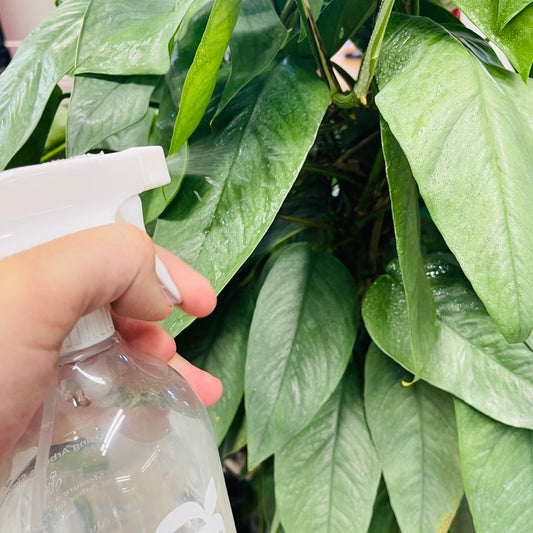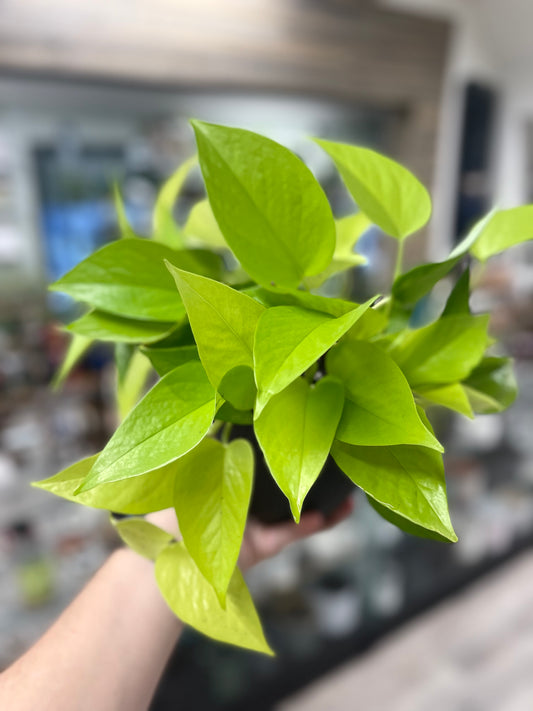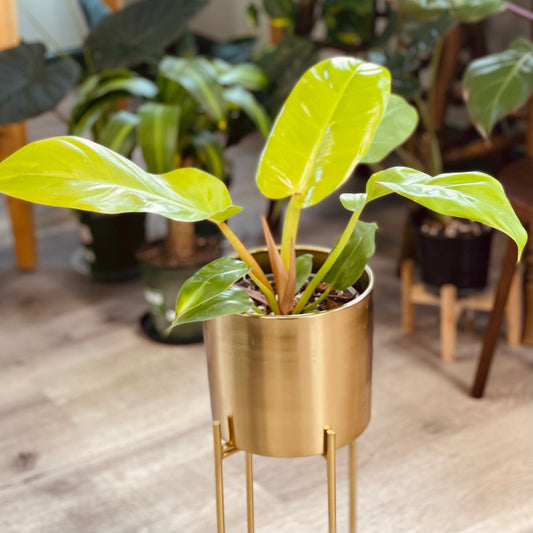Armyworms are a type of pest that can cause significant damage to houseplants. These pests are scientifically classified as the genus Mythimna, and are the larvae of the armyworm moth. They are typically green or brown in color and can grow up to 1.5 inches in length. Armyworms are known for their voracious appetites and can quickly devour large portions of a plant's leaves, stems, and flowers.

How To Detect: Detecting armyworms on your houseplants can be challenging, as they often hide inside the leaves or in the soil. However, there are a few signs to look for to determine if your plant is infested. One of the most obvious signs is the presence of large holes or ragged edges on the leaves of the plant. You may also notice small, brown or green worms crawling on the leaves or in the soil. Another symptom is the presence of frass, which are small brown droppings, on the leaves or in the soil. If left untreated, armyworms can cause severe damage to a houseplant and may even kill it.

How To Treat: Treating an infestation of armyworms on a houseplant can be done in a variety of ways. One of the most effective and safe organic options is to use insecticidal soap. This is a specially formulated soap that is safe for plants and can be used to kill armyworms on contact. Another less invasive option is to use a mixture of water and dish soap, which can be sprayed on the leaves of the plant. Chemical options include the use of insecticides such as pyrethrin and spinosad. These should be used with caution and as directed on the label.

How To Prevent: Preventing armyworms from infesting your houseplants is key to keeping them healthy. One of the best ways to prevent an infestation is to keep your plants clean and free of debris. Regularly inspecting your plants for signs of pests and removing any that are found can also help prevent an infestation. Additionally, keeping your plants healthy with proper watering and fertilization can also help to prevent an infestation.

Quarantine: If you suspect that one of your houseplants is infested with armyworms, it is important to quarantine it immediately. This will help to prevent the pests from spreading to other plants in your collection. To quarantine a plant, remove it from the area and place it in a separate room or area where it will not come into contact with other plants. When working with a quarantined plant, it is important to use clean tools and to not move tools or soil from the infested plant to other plants. This will help prevent cross-contamination.




![Dracaena marginata (16" Plastic Pot) [ID #47618480]](http://zenrockford.com/cdn/shop/files/image_992491d2-6277-4893-842f-11e2983f137e.jpg?v=1725732294&width=533)
![Philodendron Florida Bronze (10" Nursery Pot) [ID #29432345]](http://zenrockford.com/cdn/shop/files/image_a67d0fb6-348e-4829-a7eb-64ce015a3b39.jpg?v=1725643115&width=533)
![Aglaonema Manilla's Pride (3" Plastic Pot) [ID #33051624]](http://zenrockford.com/cdn/shop/files/image_1fb45f38-7b6b-412c-aa29-ed2df326d106.jpg?v=1753291075&width=533)
![Scindapsus Silver Lady (8" Clay Pot w/ Moss Pole) [ID #47128926]](http://zenrockford.com/cdn/shop/files/image_f5c79dcd-5dd4-4ba3-9cf7-f49da779e5ea.jpg?v=1726510803&width=533)